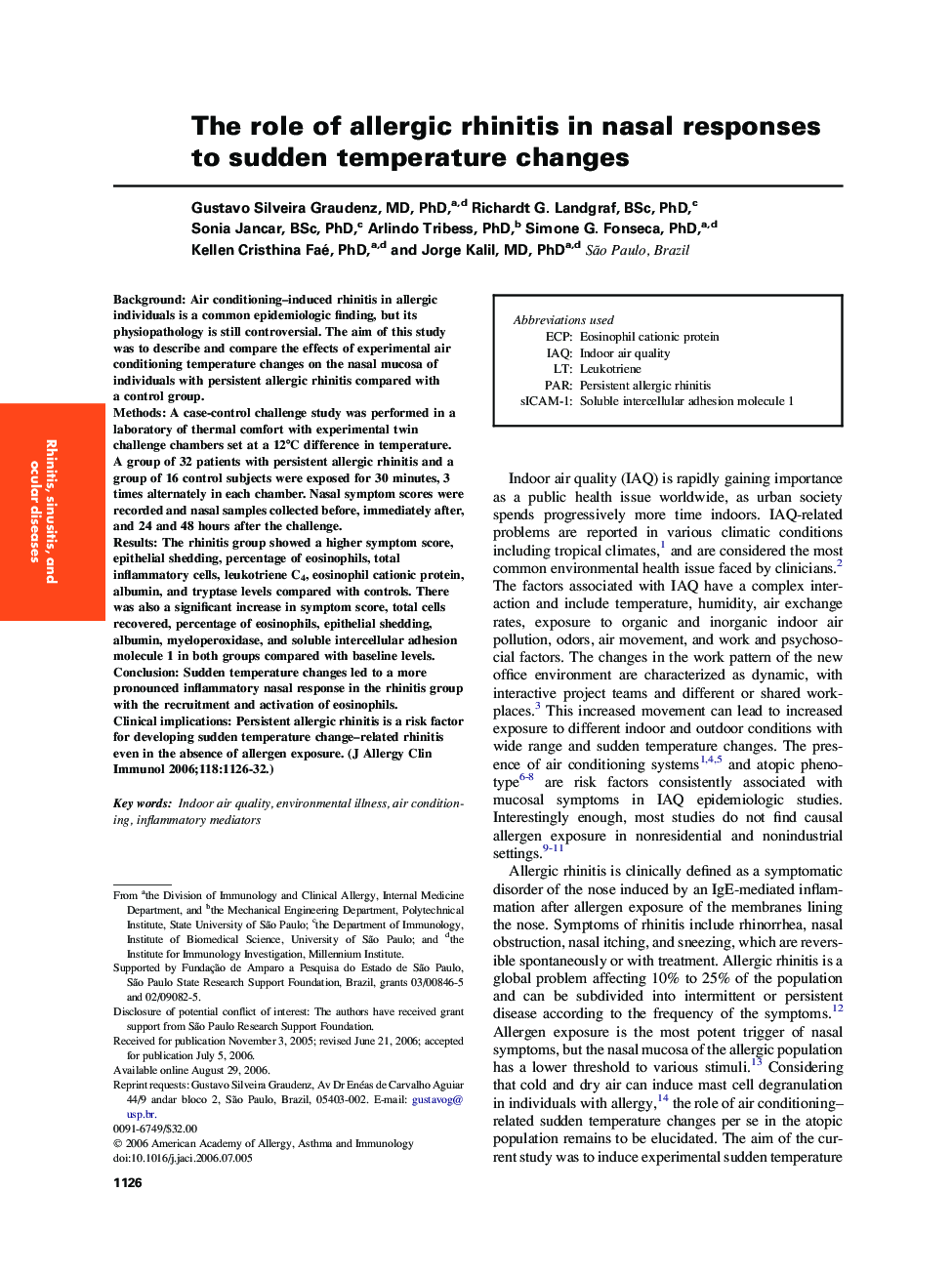| Article ID | Journal | Published Year | Pages | File Type |
|---|---|---|---|---|
| 3202560 | Journal of Allergy and Clinical Immunology | 2006 | 7 Pages |
BackgroundAir conditioning–induced rhinitis in allergic individuals is a common epidemiologic finding, but its physiopathology is still controversial. The aim of this study was to describe and compare the effects of experimental air conditioning temperature changes on the nasal mucosa of individuals with persistent allergic rhinitis compared with a control group.MethodsA case-control challenge study was performed in a laboratory of thermal comfort with experimental twin challenge chambers set at a 12°C difference in temperature. A group of 32 patients with persistent allergic rhinitis and a group of 16 control subjects were exposed for 30 minutes, 3 times alternately in each chamber. Nasal symptom scores were recorded and nasal samples collected before, immediately after, and 24 and 48 hours after the challenge.ResultsThe rhinitis group showed a higher symptom score, epithelial shedding, percentage of eosinophils, total inflammatory cells, leukotriene C4, eosinophil cationic protein, albumin, and tryptase levels compared with controls. There was also a significant increase in symptom score, total cells recovered, percentage of eosinophils, epithelial shedding, albumin, myeloperoxidase, and soluble intercellular adhesion molecule 1 in both groups compared with baseline levels.ConclusionSudden temperature changes led to a more pronounced inflammatory nasal response in the rhinitis group with the recruitment and activation of eosinophils.Clinical implicationsPersistent allergic rhinitis is a risk factor for developing sudden temperature change–related rhinitis even in the absence of allergen exposure.
